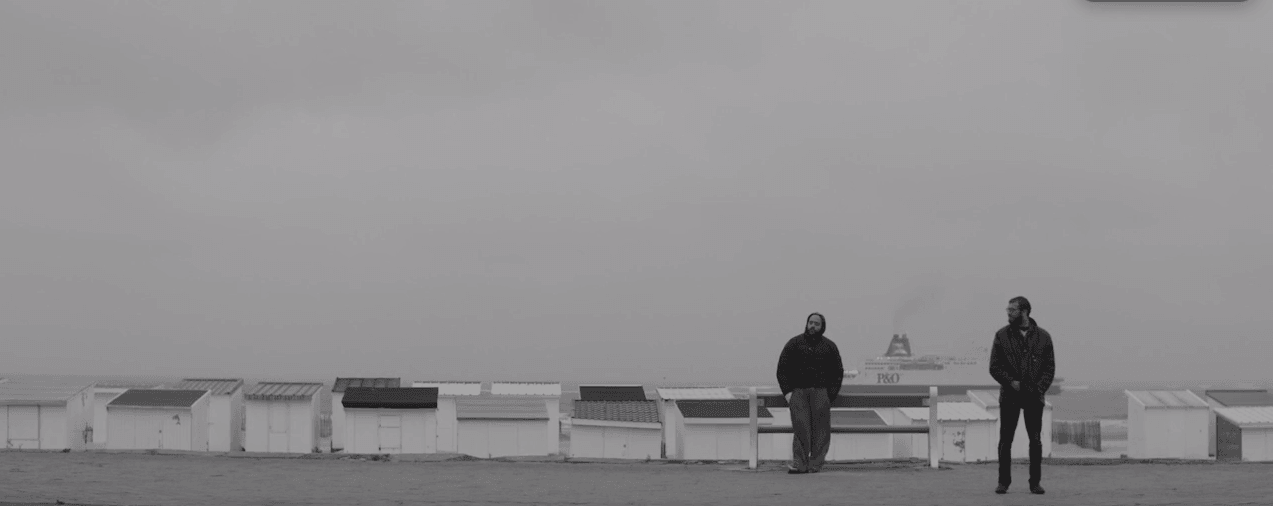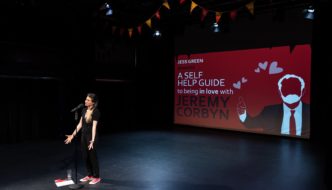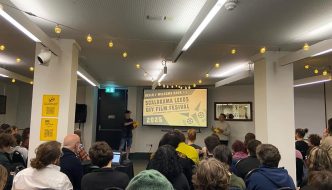Jason Wingard: “Everyone is human. I think it’s bizarre that there is such a desire to separate and divide people”.
February 28, 2017

I spoke to Jason Wingard, director of In Another Life. I had a lot to say about this film, which you can read here, but the importance and potential of it was made even clearer to me when speaking to those at the heart of the creation process.
How would you describe your decision to make the film a cross between a documentary and a fiction film?
When I first went out to Calais I got the sense that lots of documentaries were washing over people. They’d seen so many of them that they’d just be like ‘oh that’s terrible…’ and then they’d switch off. So I decided that providing a viewer with two characters that they have to stay with for ninety minutes would force you to see them as people, as opposed to news stories. Only then can you start to introduce information about the camp and the livelihood of those living in it, information that we were learning ourselves as we were out there. I felt it was really important to try and approach the film with a real honesty and appreciation of the fact that everyone is human. I think it’s bizarre that there is such a desire to separate and divide people. But, of course, you have to be delicate in how you deliver that. With the voice over, for example, we were trying to eliminate my voice to allow people to do their own thinking…that’s what the film is trying to do. Of course, good documentaries do that too. I just felt that there was a bit of a fatigue – there’s lots of them, and it becomes voyeuristic, which is another thing I definitely wanted to avoid. If I was going to represent people it was crucial that I got to know them and their stories.
I think that really comes across when you watch the film. There is a sense of authenticity and honesty about it. How much of the dialogue was scripted?
One of the most powerful scenes is Mima’s scene at the beginning of the film, which we actually had no idea he was going to do! We had just switched the cameras on, and then he broke down and started telling us about his experiences. There was the filmmaker part of me going ‘this is amazing- carry on!’… and then another part of me was very genuinely moved. There’s something so amazing about moments like that. What was bizarre was that the actor who was playing opposite Mima didn’t realise that it was a real story. I hadn’t really explained who he was, so they just thought he was an actor in for the day! I think that authentic voice is crucial for the film, and the idea was always to blend the real people in with our actors, so you can’t see the join so much. The people who play the bad guys are also all real refugees. We had to be very flexible and adapt to our surroundings. And actually, initially, Yousef was with us as a translator – he wasn’t going to be in it at all. We just had scenes with Adnan and Bana, but then I realised that we had all these isolated snippets and no way to tie them together. I thought it was really important for Adnan’s story as well that he have someone in the camp with him, so we did a few improvised scenes with Yousef, and it was immediately clear that he needed to be in the film as a real solid character.
I understand you had a very limited budget. If you could go back and do it again with a bigger budget or more time, do you think you would change anything?
I think with a big budget you would actually damage it. What was good about it was that we could just go and do what we wanted with no one watching over us or restricting us. If you had a bigger budget it would feel fake and artificial. It’s one of those things…if you have too much time to think about it you can’t do it! We did the first ten days of filming in The Jungle, then we came back and made a trailer, and then we built a mini Jungle on an anti-fracking camp. That was an amazing spot by the art and design team. Martin Butterworth was just brilliant; he built me a mini Jungle in about five days! On the budget we had, it was amazing to pull off. But, of course, you can never get it perfect and there are things I would have done differently. I would have actually crewed it with refugees. I would have gone in and found people to work with me there. There were so many film makers, camera-men and actors already there, people whose individuality had just been stripped by the refugee crisis. There are a lot of mental health issues and paranoia, stemming largely from how the people are treated in the camp. There was a Syrian camp that got bulldozed and they lost all of their belongings, their passports and everything. There was no thought for individuals there. In those situations you’re stripped of your individuality and that’s really hard to grasp. We were really trying to have an empathy with those people, but you can never get it perfect.
The ending is very ambiguous, what can you tell me about it?
The thing is, I don’t think you can do a typical ‘oh they’re back together again’ ending for Adnan and Bana, especially when you’re dealing with the refugee crisis. You’re stuck between two things really. You’re trying to make a film, but you’re also trying to give factual information, so it’s this tricky balance. We were really keen to leave it open and ambiguous to allow people to make their own minds up about what happens at the end. What was lovely about the screening was that people were coming back to us with their own interpretations days later, which means they were still thinking about it.
I certainly am still thinking about it! I really enjoyed it.
I’m so glad you did. It’s weird when you make a film and suddenly it’s not yours anymore! It’s up to other people to make something of it. The first screenings are always really nerve-wracking, especially when you’ve enjoyed making the film so much. We are looking to have an official premiere to launch the film, and then find an audience…which I think we definitely will be able to do. So we’ll see!
Keep your eyes out for the official premiere of this beautiful, moving piece of cinema. And make sure to check out my review here.
Filed under: Film, TV & Tech
Tagged with: documentary, film, HOME, politics, Refugee Crisis, The Calais Jungle



Comments